Assam ends 90 year old Namaz tradition in assembly
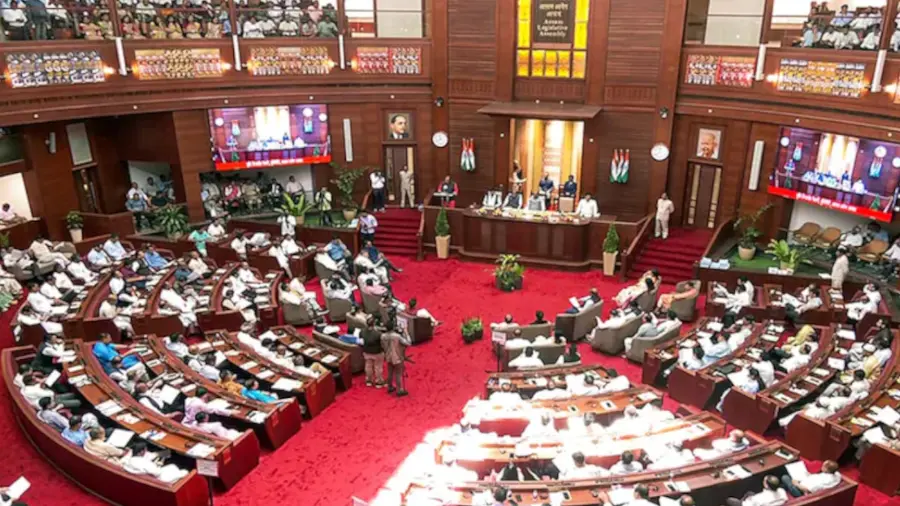
Assam legislative Assembly

Anjali Ganga
Published on Feb 22, 2025, 06:27 PM | 5 min read
For the first time in 90 years, the two-hour break that allowed Muslim legislators to perform Namaz on Fridays was unceremoniously discontinued in the Assam Legislative Assembly. The decision to put an end to this 90-year-old tradition was taken by the Rules Committee of the House last August. The move ignited a firestorm, with several MLAs protesting what they saw as an authoritarian decision by the ruling BJP and its allies.
Voices of Dissent
About 30 opposition MLAs raised their voices against the unanimous decision. AIUDF MLA Rafiqul Islam described the decision as an imposition, where the majority members made a call on a sensitive issue of faith related to a minority community. Speaker Biswajit Daimary countered by asserting that this move should be seen as a step towards secularism, and that the Legislative Assembly would function on Fridays just like any other day. Chief Minister Himanta Biswa Sarma chimed in, claiming that the decision would ultimately enhance productivity and could be seen as breaking away from colonial legacies.
A Broader Lens: BJP's Aggressive Stance
Apart from the Chief Minister's assertion that the move cuts ties with colonialism, this development can be viewed through a broader lens as an aggressive stance by the BJP-led NDA government. The BJP seems to be burning the midnight oil to create a deep divide among communities.
This intention first took shape with the introduction of the National Register of Citizens in 2019, a move widely regarded as prejudiced against the Muslim community, leading to nationwide protests. After this, in 2019, the Assam government updated its National Register of Citizens, which excluded nearly two million Bengali people. Widespread protests erupted throughout the Northeast, which morphed into communal violence, specifically targeting Muslim minorities. This series of events should be analyzed in the broader context of the Hindutva forces' efforts to create a homogeneous Indian society.
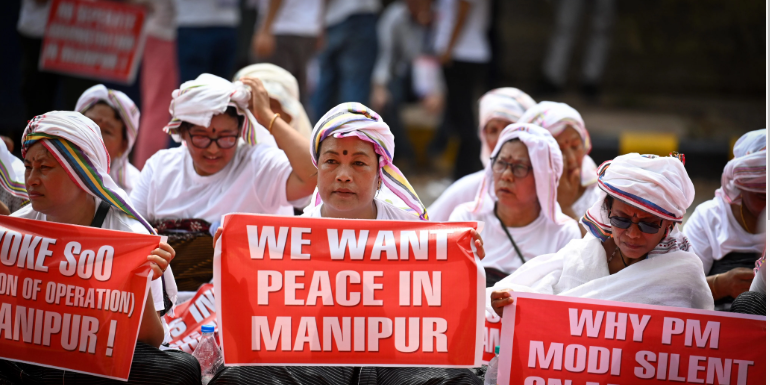 Women stage protest in Imphal
Women stage protest in Imphal
The Sangh Parivar in Manipur has practiced polarizing politics by fostering hatred towards the Christian Kukis among the Meiteis. With the BJP gaining an absolute majority, the politics of hatred intensified. With Meitei being the majority tribe in Manipur, Organizations like Arambai Tengol and Meitei Leepun, which operate on the RSS model, became active with the support of the Sangh Parivar, and their foundation was rooted in anti- Kuki sentiment. Chief Minister Biren Singh directly encouraged these extremist organisations. Additionally, the Biren Singh government took steps, including the eviction of Kukis, which led to widespread unrest. The High Court's order to consider granting Scheduled Tribe status to the Meitei community further inflamed Meitei--Kuki tensions.
On May 3, 2023, ethnic and communal clashes began. The violence was pre-planned by organizations like Arambai Tengol and Meitei Leepun, which launched widespread attacks on Christian churches, schools, and other institutions in both the valley and the hills. In the valley, Christians were hunted down. As the Kukis also took up arms, the situation in Manipur became akin to a war. The Meitei and Kuki areas were divided like two hostile nations. In the months-long violence, around 300 people were killed, and thousands were left homeless.
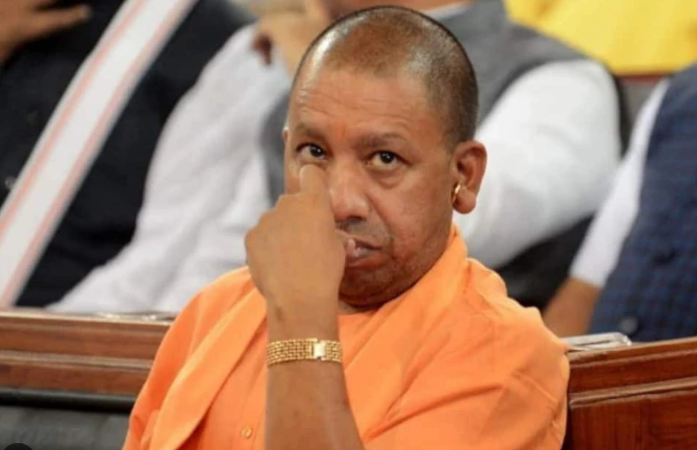 Uttar Pradesh State Assembly passed the Uttar Pradesh Unlawful Conversion of Religion (Amendment) Bill, 2024
Uttar Pradesh State Assembly passed the Uttar Pradesh Unlawful Conversion of Religion (Amendment) Bill, 2024
Similarly, the Prohibition of Unlawful Conversion of Religion (Amendment) Bill—2024, passed by the Uttar Pradesh Legislative Assembly, is claimed to be aimed at preventing "coercive conversions." However, around 47 false cases have been framed against pastors and nuns in UP who have been active social workers in the same field.
Additionally, prior to the amended bill, a converted individual, or their siblings or parents, was required to be present to file a wrongful conversion complaint with the police. Now, any individual can report suspicious conversion activity to authorities, prompting allegations of false reports. This is considered a non-bailable offense and carries a minimum sentence of seven years in jail and a maximum prison sentence of 14 years.
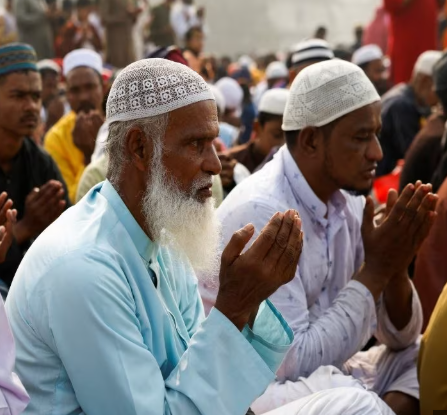
Pasmanda Muslims and Caste Politics
Another scenario that can be read along with this is the denial of backward caste status for Pasmanda Muslims in Telangana. Union Minister for Home Affairs and BJP’s Karimnagar MP Bandi Sanjay Kumar's controversial remarks about the hesitance in including Pasmanda Muslims in the OBC category have sparked debate. The caste survey conducted by the Congress government in Telangana revealed that only 2.48% of Telangana's Muslims are from the "forward castes," while the remaining 10.08% come under the Backward Classes category. This has led to a chorus to scrap the quota for Muslims, with BJP leaders opposing their inclusion in the BC category. The BJP is pushing to scrap the 4% reservation for Pasmanda Muslims in state government jobs and state-run educational institutions.
Muslims in Karnataka have faced a similar situation where the BJP government led by Basavaraj Bommai scrapped the four percent reservation for them ahead of the 2023 Assembly polls, arguing that religion cannot be considered the basis for granting a quota. Muslims had enjoyed reservation under the 2B category in the state between 1994 and 2023.
Persistent Atrocities Against Minorities
Since Modi came to power, there has been a persistent pattern of atrocities against the minority communities in various states. Minorities have been attacked for the way they dress, the food they eat, and the manner in which they worship. The unlawful demolition of their homes, particularly in BJP-ruled states, has only widened the social chasm. The scrapping of the special status of Jammu and Kashmir, the rise of cow protection mobs, and the New Delhi clashes of 2020 are some of the most significant outbursts of violence against Minorities in India. The recent discontinuation of the Namaz break in the Assam Legislative Assembly can be seen as part and parcel of the continued aggression against Minorities in India.



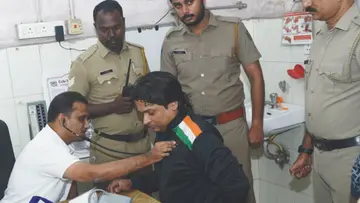

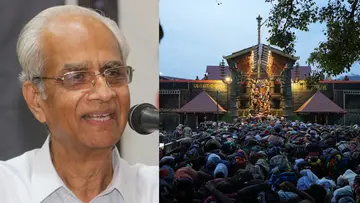
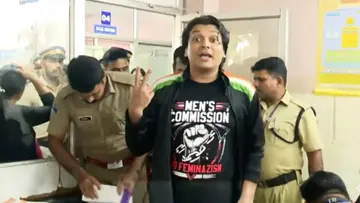



0 comments